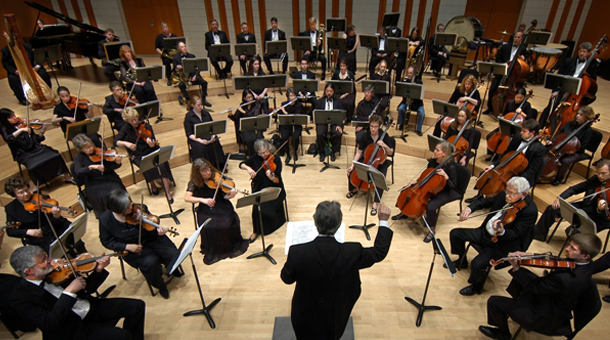Gustav Mahler – Symphony No.5 in C Sharp Minor: IV Adagietto
Undoubtedly Mahler‘s most famous piece of music–aside from the stunning Quartet for Piano and Strings in A Minor, heavily featured in Martin Scorsese‘s incredible film Shutter Island–the Adagietto, movement four of Mahler‘s fifth symphony, is an incredibly beautiful example of the Austrian composer’s historically strategic place between the romantic and modern eras. Beginning with gentle harp and strings, the piece gently works through a lavish Romantic-inspired first section, tinged with chilling hints of German modernism in the chord structures, and gradually launches into an aggressive middle section that integrates many musically and distinctly northern European elements: languishing chord structures, unpredictable movement, and a general tone of sorrow and despair. Gently winding down through a distinguished quiet section, the piece inevitably ends up landing solidly into Romantic territory, with the absolutely stunning strings performing one final crescendo into a climax that ends on a historical major-chord progression between the violins and cellos.
Legend says that Mahler, while touring Europe and conducting orchestras all over the continent, became homesick during one particularly long outing, and wrote this Adagietto as a lament for the absence of his wife, Alma. After composing the piece, Gustav sent the piece through the mail to eventually reach Alma at home; Alma, also an exemplary musical composer, opened the letter, looked over the piece, and–understanding the message written into the music by her husband–Alma immediately packed her belongings and traveled to be by Gustav‘s side. Many say that this particular Adagietto relates much more closely to death rather than love–but, indeed, while Austrian and German Romantic compositions tended to carry a dramatic, melancholic feel to them, this piece is an enduring example of the power of love that brings people together, regardless of circumstance or distance.
Gustav Mahler – Symphony No.5 in C Sharp Minor: IV Adagietto











